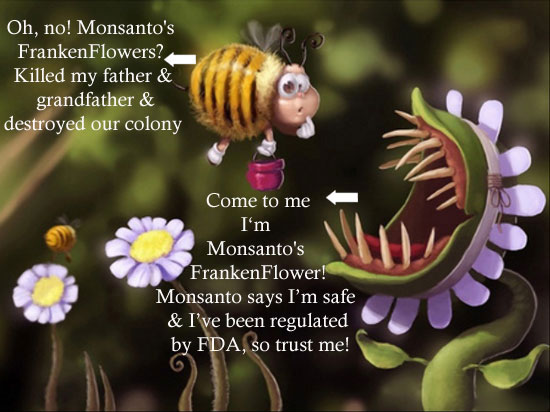To Bee or not to be?
You probably have heard that honeybees are disappearing from our world at an alarming rate. Bees are one of the major pollinators vital to our food supply. In fact, 87% of plants are pollinated by bees and about one third of what we eat is directly dependent on bees.
Honeybees pollinate many of our fruits and vegetables including apples, almonds, onions, cherries, avocados, oranges and honey. In the last few years scientists and beekeepers have been studying to find out what’s causing the sudden disappearance of bees also known as Colony Collapse Disorder (CCD).
Many researchers and scientists believe that there is a combination of factors that’s resulting in CCD and the main reason is the increase in use of insecticides known as neonicotinoids.
Based on several recent studies, the use of neonicotinoids is a major factor contributing factor in Colony Collapse of bees. Neonicotinoids kill pests and insects by disrupting their central nervous system. The toxins in nectar and pollen result in disorientation and painful death of bees.

Even small exposure of bees to neonicotinoids can weaken their immune system and that’s why the European Food Safety Authority is seeking to ban neonicotinoids for crops that produce nectar and pollen.
These toxins can weaken the bees immune system and long term exposure of bees to these insecticides can be fatal for honeybees. Pesticides have been directly linked to CCD of bees and recent studies have shown that bees are two to three times more likely to lose their homing ability due to even small exposure to neonicotinoids.
If bees go, we go:
Did you know that 80% of world’s almonds are supplied by California? But in 2012, California almond growers didn’t have enough bees to plant 800,000 acres. California relies on 1.6 million bee colonies to plant almond, but there are only 500,000 colonies left in California so the state had to bring over one million bee colonies from North America. The whole situation led to economic loss for California almond growers and higher price of almond for consumers.
The food and environmental activists in US are asking Environmental Protection Agency (EPA) to put a ban on neonicotinoids and other pesticide. Just in 2006, the beekeepers lost 90% of their hives and most of seeds and food supply of the world depends on bees.
While EU countries have implemented a ban on the use of neonicotinoids, USDA and EPA refuse to put a ban on these toxic insecticides. The scientific community and biologists suggest that if honeybees disappear, we will only have four years to live since a chain reaction will start to eradicate certain species due to lack of pollination and that will effect crops and birds and so forth. Fewer bees mean lower availability and potentially higher prices of fruits and vegetables.
Currently, beekeepers are losing up to 50% of their bee hives and many crops (such as Almonds, apples, apricots, avocados, blueberries, cantaloupes, cashews, coffee, cranberries, cucumbers, eggplants, grapes, kiwis, mangoes, okra, peaches, pears, peppers, strawberries, tangerines, walnuts and watermelons) pollinated by bees will disappear if bees die.
A world without bees would be a world without us and humanity cannot survive after bees go extinct. We have to change the way we produce food and look for an alternative to factory farms and industrial agriculture.
Supporting sustainable agriculture methods are vital in maintaining our ecosystem and sustaining the population of bees. By growing our own foods or supporting small family farms we could reverse the major decline in population of bees. We must also put pressure on our elected officials and ask them to ban the use of neonicotinoids that are killing millions of bees.Please sign the petition below and ask FDA to ban insecticide producing genetically modified crops, clothianidin and neonicotinoids:
Related Articles:


